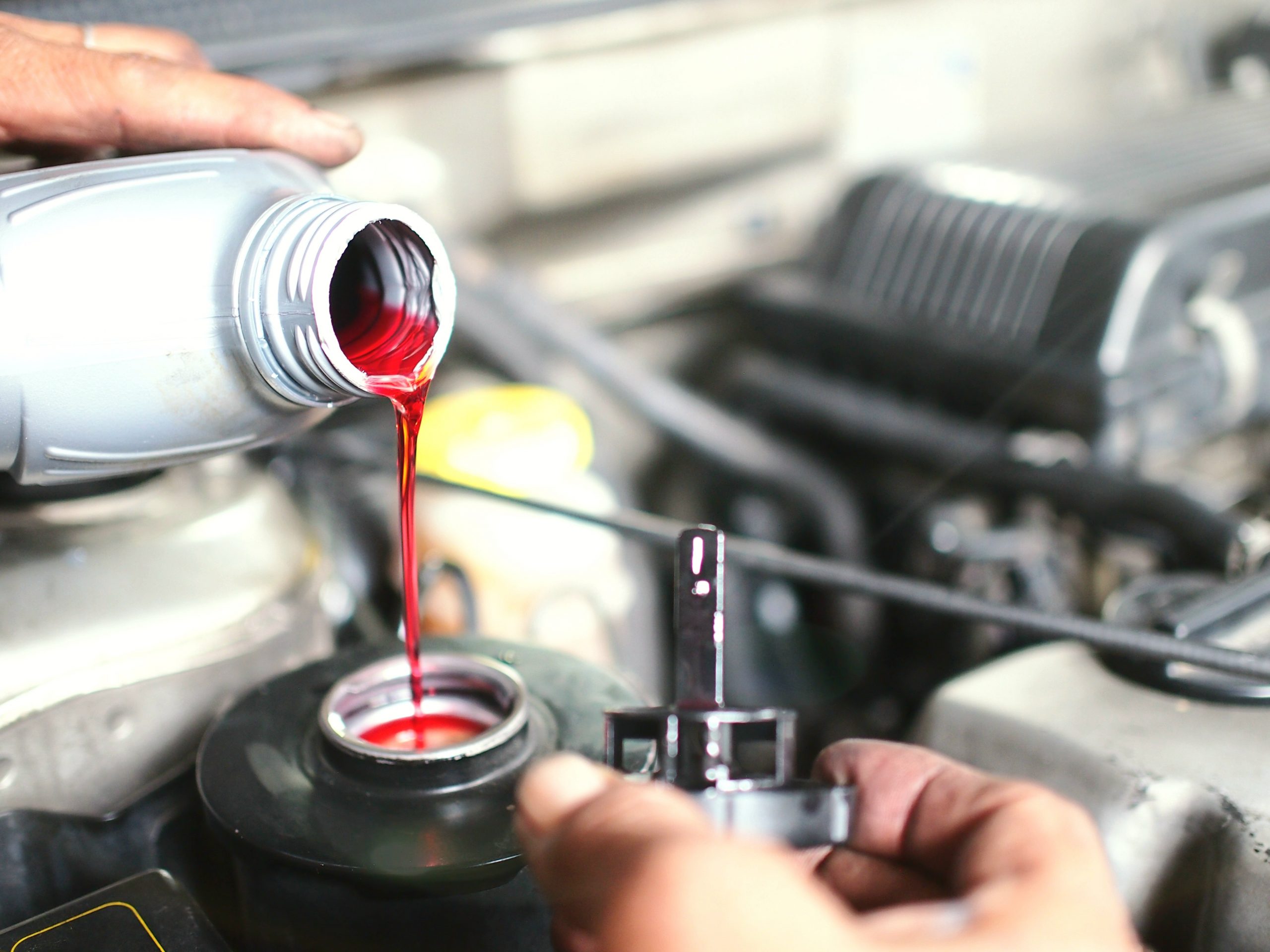Regular brake fluid checks are a critical aspect of vehicle maintenance that often goes overlooked. Brake fluid plays a vital role in your car’s braking system, as it transfers the force from your brake pedal to the brake calipers, enabling your vehicle to stop effectively.
Over time, brake fluid can become contaminated with moisture, dirt, and other debris, leading to a decrease in its performance and potentially compromising your vehicle’s braking ability.
Regularly checking and maintaining your brake fluid ensures that your braking system operates efficiently, providing you with the reliability and safety you need on the road.
This guide will explore the importance of regular brake fluid checks, including the risks of contaminated brake fluid, the benefits of maintaining proper brake fluid levels, signs of brake fluid issues, and best practices for checking and replacing brake fluid.
Risks of Contaminated Brake Fluid
Contaminated brake fluid can pose serious risks to your vehicle’s braking system. Brake fluid is hygroscopic, meaning it absorbs moisture from the air over time. This moisture can lower the boiling point of the brake fluid, reducing its effectiveness under high temperature conditions, such as during heavy braking or when driving downhill.
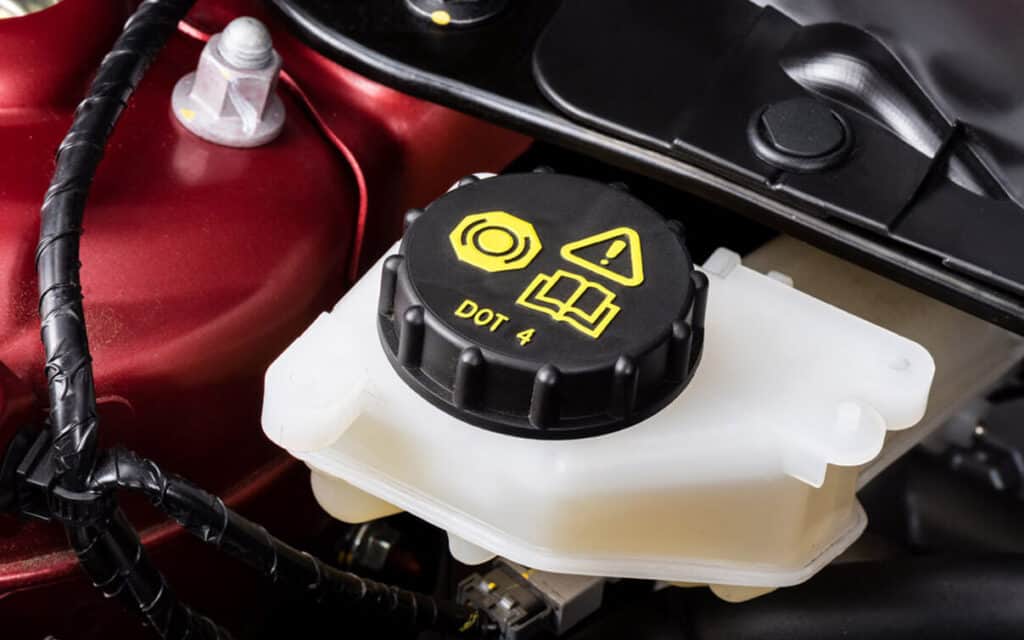
Moisture can also cause internal corrosion of brake components, leading to leaks and potential brake failure. Additionally, dirt and debris can enter the brake fluid system, causing blockages and impairing the fluid’s ability to transfer pressure efficiently.
Regularly checking and replacing your brake fluid helps prevent these risks, ensuring the braking system remains effective and reliable.
Benefits of Maintaining Proper Brake Fluid Levels
Maintaining proper brake fluid levels is essential for the optimal performance of your vehicle’s braking system. Adequate brake fluid levels ensure that the hydraulic pressure needed to engage the brakes is available, allowing for smooth and consistent braking performance.
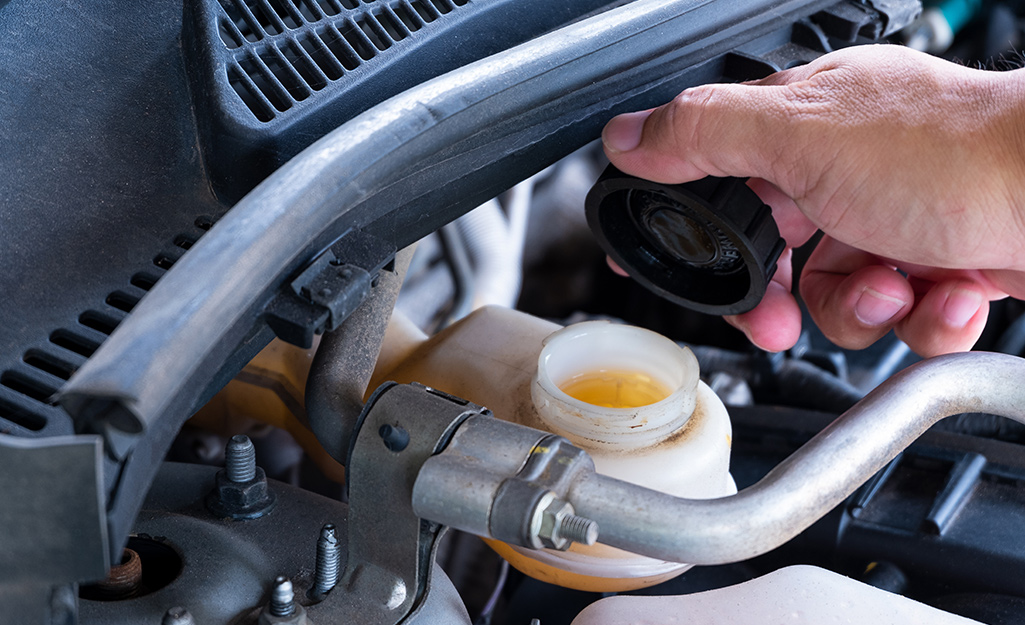
Proper brake fluid levels also help prevent air from entering the brake lines, which can cause spongy or unresponsive brakes. Regularly checking and topping up your brake fluid ensures that your vehicle’s braking system functions correctly, providing you with the confidence and control needed to drive safely.
By keeping your brake fluid at the recommended level, you can avoid potential brake issues and ensure a smooth and safe driving experience.
Signs of Brake Fluid Issues
Recognizing the signs of brake fluid issues can help you address potential problems before they escalate. Common signs of brake fluid problems include a soft or spongy brake pedal, which may indicate air in the brake lines or low brake fluid levels.
Another sign is a brake warning light on the dashboard, which can indicate a range of issues, including low brake fluid. If you notice that your brakes are less responsive or require more effort to engage, it could be due to contaminated or depleted brake fluid.
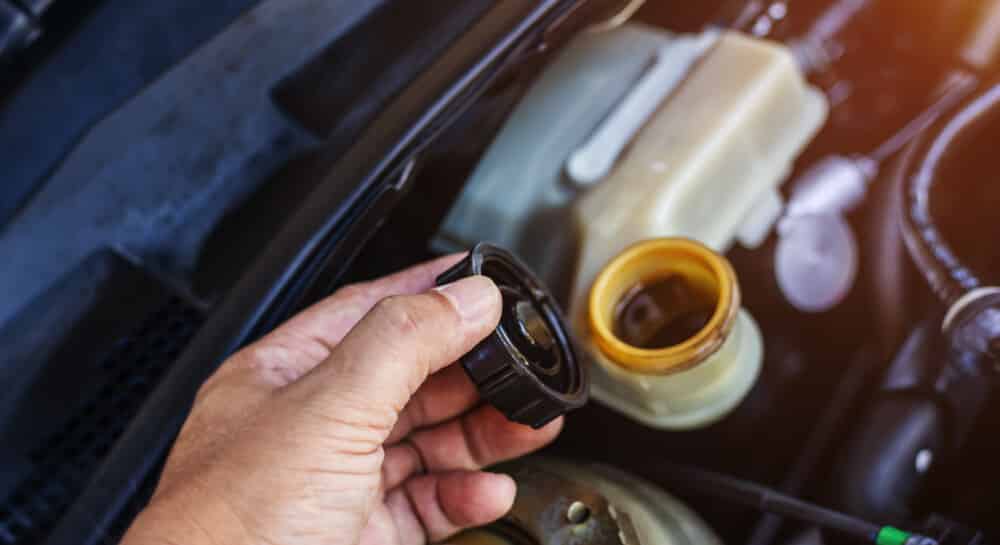
Additionally, dark or dirty brake fluid is a clear sign that it needs to be replaced. Regularly inspecting your brake fluid and being aware of these signs can help you maintain the effectiveness of your braking system and ensure your safety on the road.
Best Practices for Checking and Replacing Brake Fluid
To maintain your brake fluid in good condition, follow these best practices for checking and replacing it. First, refer to your vehicle’s manual for the recommended brake fluid type and replacement intervals.
Most manufacturers suggest replacing brake fluid every two to three years or according to specific mileage intervals. To check your brake fluid, locate the brake fluid reservoir in the engine bay, typically near the driver’s side firewall. Ensure that the fluid level is within the recommended range and that the fluid appears clear and free of debris.
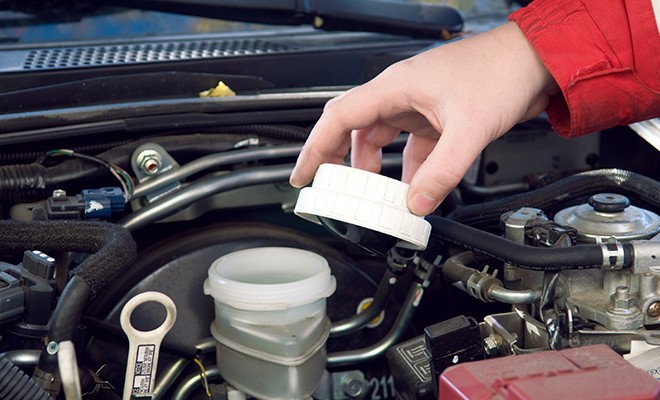
If the fluid is low or appears dirty, it’s time for a replacement. When replacing brake fluid, ensure that you use the correct type and follow the manufacturer’s guidelines for bleeding the brake system to remove air bubbles. Regular maintenance of your brake fluid helps ensure the longevity and effectiveness of your braking system.
Importance of Professional Inspection
While checking and maintaining brake fluid can be done at home, it’s important to have your braking system professionally inspected regularly. A qualified mechanic can perform a thorough inspection of the entire braking system, including brake pads, rotors, calipers, and brake lines.
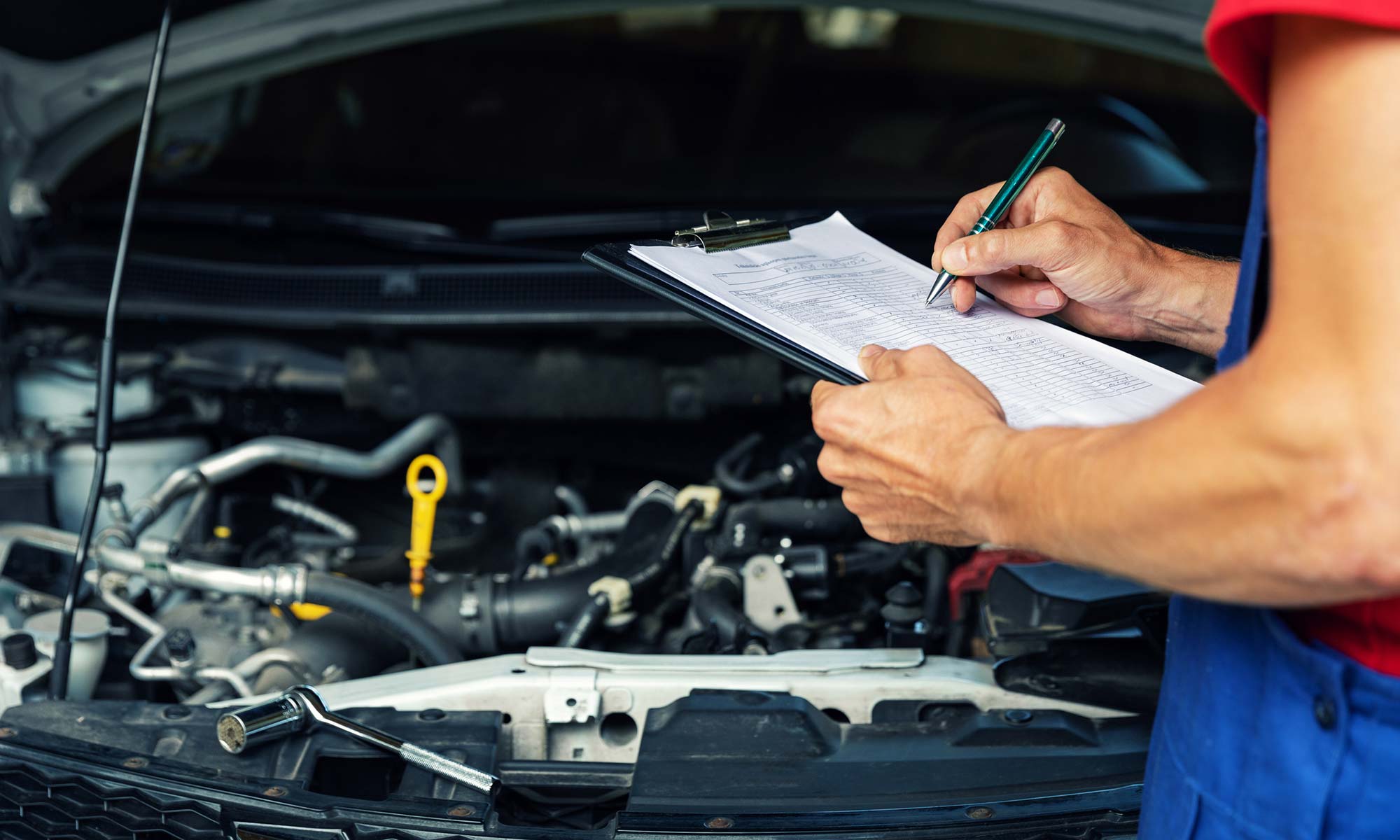
They can identify any potential issues that may not be apparent during a routine check and provide the necessary repairs or replacements. Professional inspections also ensure that brake fluid is properly bled and replaced, maintaining the integrity of the braking system.
By combining regular at-home checks with professional inspections, you can ensure the safety and reliability of your vehicle’s brakes.
Impact on Vehicle Longevity
Regular brake fluid checks and maintenance can have a positive impact on the overall longevity of your vehicle. A well maintained braking system reduces the risk of premature wear and tear on brake components, preventing costly repairs and extending the life of your vehicle.
Consistent brake fluid maintenance also ensures that your vehicle performs optimally, providing you with a safe and enjoyable driving experience. By prioritizing regular brake fluid checks and adhering to the recommended maintenance schedule, you can protect your investment and enjoy a reliable and well maintained vehicle for years to come.
By understanding the importance of regular brake fluid checks and following best practices for maintenance, you can ensure the effectiveness and reliability of your vehicle’s braking system.
Regular inspections, timely replacements, and professional servicing are key to maintaining optimal brake performance and safety. Keep your brakes in top condition to enjoy a smooth and secure driving experience.

